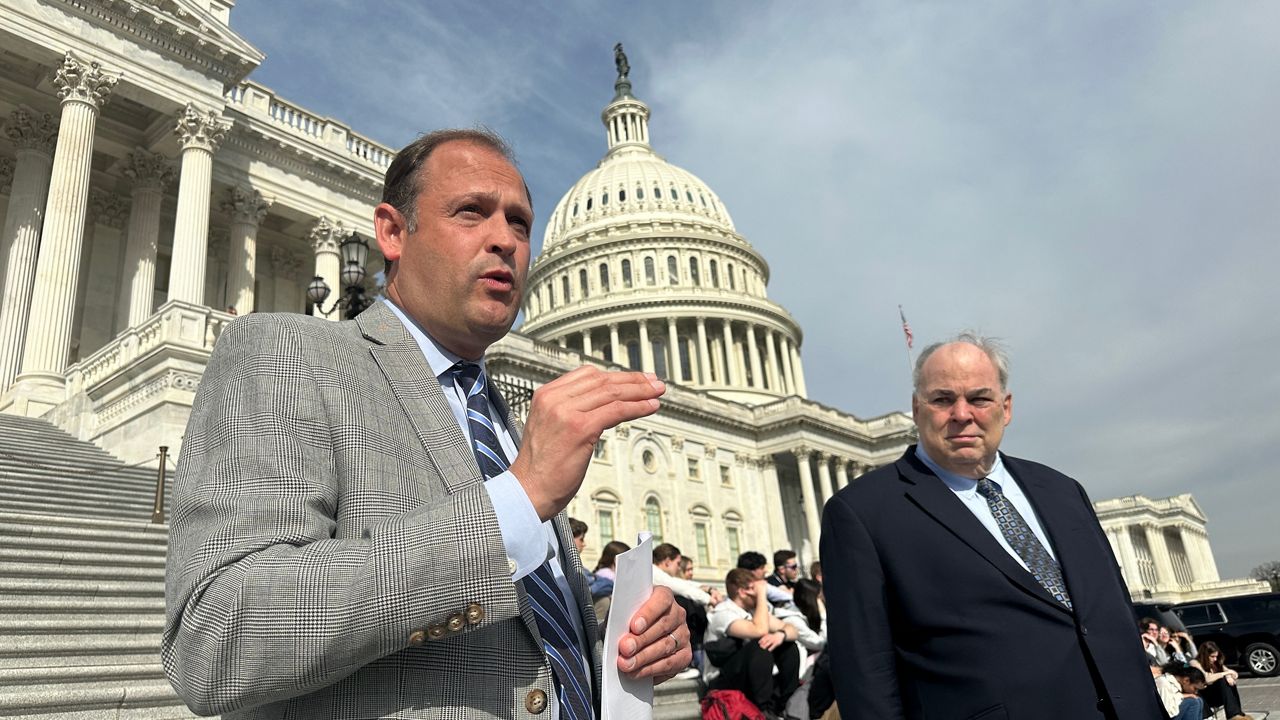FRANKFORT, Ky. — Kentucky's so-called school choice program, which garnered controversy and a lengthy legal challenge, violates the state constitution, Kentucky's Supreme Court ruled Thursday.
House Bill 563, dubbed the Education Opportunity Account Act or the school choice bill, was ruled unconstitutional and struck down by the Kentucky Supreme Court in a unanimous decision affirming Franklin Circuit Judge Phillip Shepherd's ruling.
What You Need To Know
- Kentucky's Supreme Court struck down a state law that allowed donors to receive tax credits for supporting private school tuition
- In its unanimous decision, the high court said the 2021 measure violated the state's constitution as the justices upheld a lower court ruling issued more than a year ago
- The measure was narrowly passed by the Republican-dominated legislature over Democratic Gov. Andy Beshear’s veto
- It created a form of scholarship tax credits — referred to by supporters as “education opportunity accounts.” Under the measure, private donors backing the accounts would be eligible for tax credits
The law’s opponents objected to using the state tax code to aid private education. The measure's supporters said tax credits didn’t amount to government spending, even if they decrease revenues.
Eddie Campbell, president of the Kentucky Education Association, a labor association representing tens of thousands of educators, hailed the ruling as a victory for public schools.
“We simply can’t afford to support two different education systems — one private and one public — on the taxpayers’ dime, and this ruling supports that concern," he said in a statement. "This decision is proof that the courts continue to serve as an important check against legislative overreach.”
Opponents also noted that the tax credits will cost the state treasury $25 million annually.
The measure was narrowly passed by the Republican-dominated legislature over Democratic Gov. Andy Beshear’s veto. It created a form of scholarship tax credits — referred to by supporters as “education opportunity accounts.”
Under the measure, private donors backing the accounts would have been eligible for tax credits from the state. The grants could have been used for an array of educational expenses — including private school tuition in several of the state’s most populated counties.
The Supreme Court ultimately found that the formula violated the constitution.
“We are compelled to agree that the EOA Act violates the plain language of Section 184” of the state constitution, Deputy Chief Justice Lisabeth T. Hughes said in writing for the court. "Simply stated, it puts the Commonwealth in the business of raising “sum(s) . . . for education other than in common schools.”
The Kentucky Center for Economic Policy's senior fellow, Pam Thomas, said in a statement Thursday's ruling should motivate lawmakers to focus on strengthening public education.
"Lawmakers should now turn their attention away from inequitable and unconstitutional voucher programs and focus on their Constitutional mandate to ‘provide for an efficient system of common schools throughout the state.’ That means providing adequate funding to the many different components of successful public schools, including skilled teachers, up-to-date instructional materials, non-academic supports and safe learning environments. That’s how we ensure that all Kentucky children thrive, no matter their race, family income or zip code," Thomas said.
Tom Shelton, executive secretary with the Council for Better Education, called the decision "great news" for schools, students and faculty in Kentucky.
“We don't want to take anyone’s choices away, but when we already have an underfunded public education system, to even consider taking away $125 million over five years that would have been allocated for these programs away from our public schools was not something we could sit by idly and not address," Shelton said.
Supporters of school choice released a statement saying, in part, that the decision "will hold back thousands of Kentucky students from reaching their full potential," according to a statement from EdChoice Kentucky President Andrew Vandiver.
"This effort to empower parents is too important to stop, and we will continue working to give every Kentucky student access to an education as unique as they are.”
The Associated Press contributed to this report.










